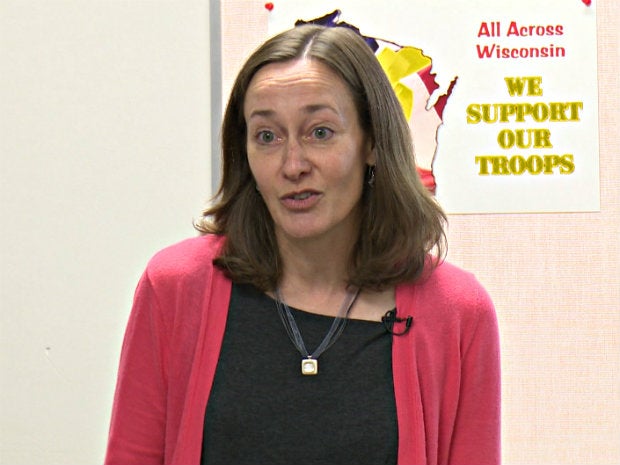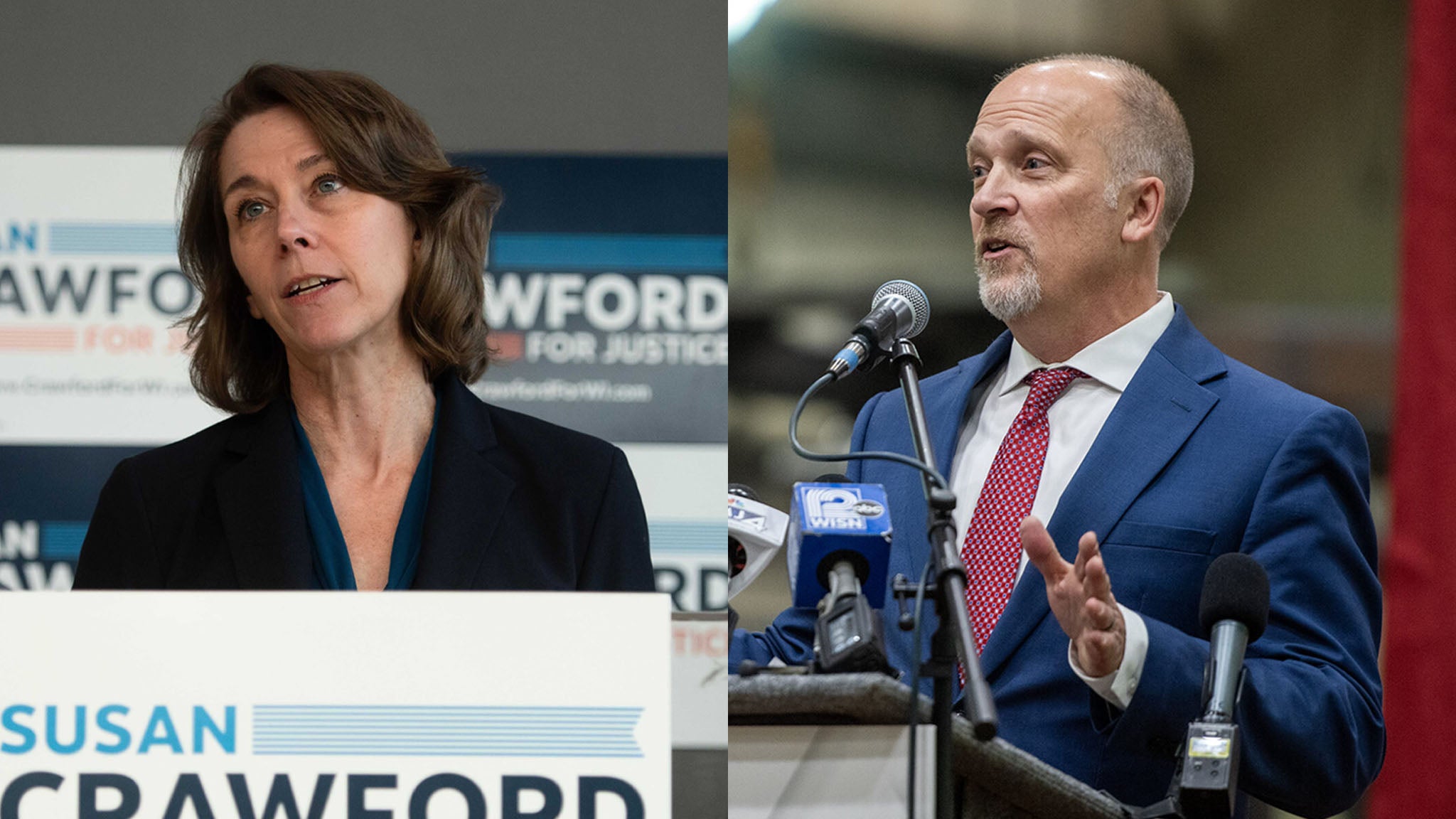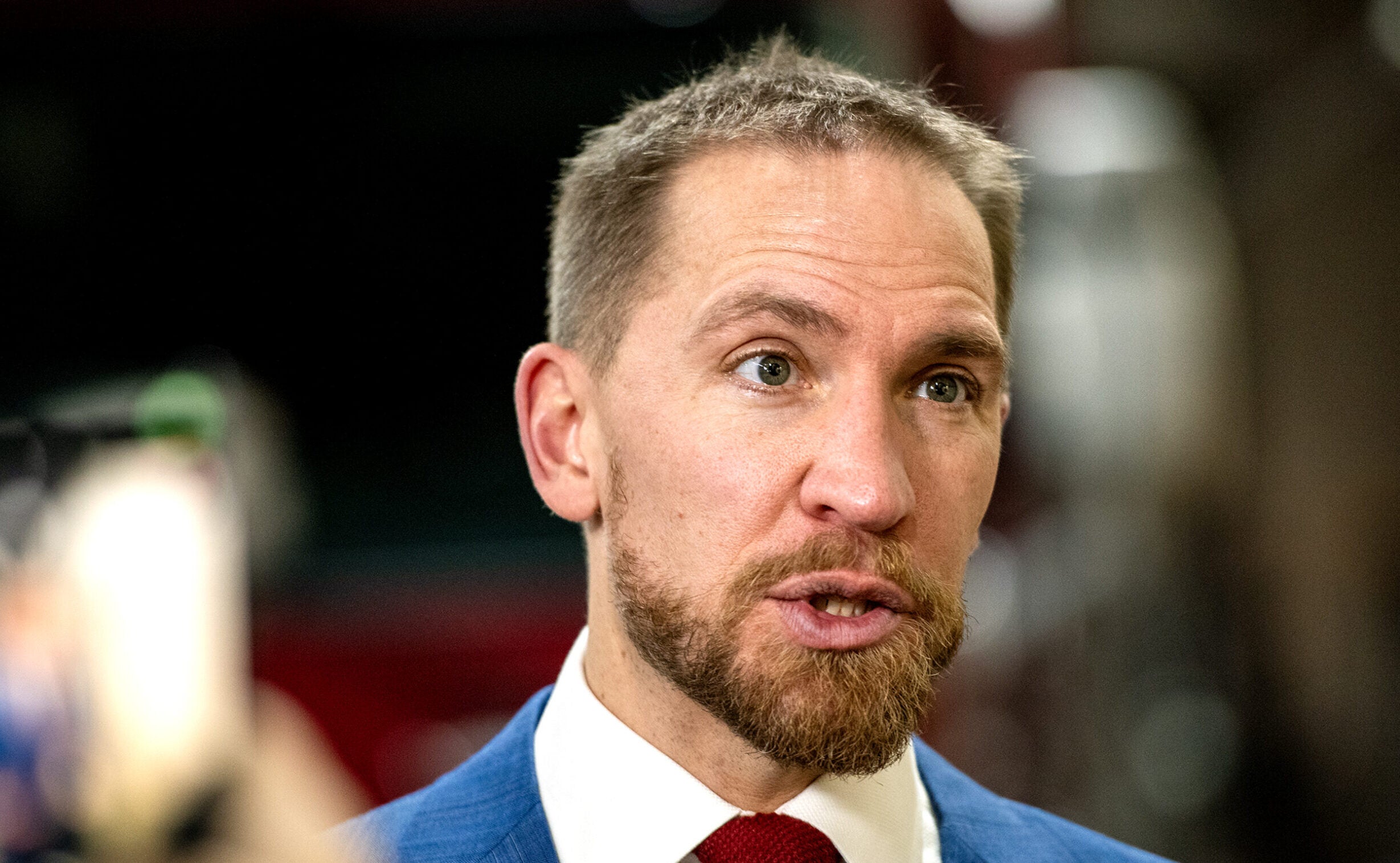Four financial strategies can help people use their money to balance their needs with enjoyment of their lives, University of Wisconsin-Extension senior outreach specialist Peggy Olive said in an Aug. 5, 2015, talk at the Wisconsin Department of Military Affairs.
Olive’s “secrets” to financial well-being begin with a better understanding of how one acquires and spends money. Keeping track of this information is a good place to start. Olive said that she keeps a notebook and writes down every sum that she spends and what it went toward. Some people can keep track in their heads, while others might prefer accounting spreadsheets or bookkeeping apps.
Fixed expenses like rent and loan payments are the easiest to monitor, Olive said. Variable expenses occur monthly, though their amount might change, while discretionary expenses can be more flexible.
Stay informed on the latest news
Sign up for WPR’s email newsletter.
People feel more stress when they have more expenses than income, Olive noted, citing examples of when a given month’s bills are due before the previous month’s are paid, when credit cards aren’t paid off and when people are not able to save for emergencies or toward goals. Planning for unexpected events like involuntary job loss or a health change can reduce stress, she added.
Preparing such an emergency plan is Olive’s second secret, perhaps building it around a bank or insured money market account. Maintaining good credit can be handy in an emergency, she also noted. Acquiring a credit card for emergencies and using it occasionally to keep the account open is a constructive step.
Evaluating one’s insurance needs is another method of planning for emergencies, Olive explained. People can shop around and determine how much coverage they need, whether policies can be bundled and whether less expensive options are available. Larger deductibles can save money if a potential expense can be budgeted.
Saving for long-term goals is the third secret of financial happiness, Olive said. These can include retirement, buying a home or car, vacation or a child’s college tuition. For example, someone expecting to need a new car in three years could do the math and find that saving $20 a week over that time will build $3,000 toward the down payment. One way to find money to save is to play with spending and experiment with giving up small, regular expenses, Olive said.
Finally, Olive’s fourth secret is that people should focus on what is important to them. Money should bring people joy through how they spend or give it, she said.
Olive’s presentation was recorded for Wisconsin Public Television’s “University Place” program.
Key Facts:
- Forty percent of people who responded to the 2012 National Financial Capability Study have a rainy day fund to help them cover three months of expenses in an emergency. Nineteen percent spend more than they earn every month, likely using credit cards or loans to make ends meet, while 26 percent have overdue medical bills. Overall rates in Wisconsin for each of these practices are similar.
- A homeowner should set aside at least 1 percent of the home’s value each year to cover new appliances, roof or foundation repairs, or other maintenance.
- Financial experts recommend having an emergency fund set aside for the three to six months it takes for disability insurance payments to begin.
- Creditors look at debt-to-income ratio to determine whether an individual qualifies for a loan or a credit card. The lower the ratio the better, because if money is already obligated somewhere else, then the borrower has less to live on in the here and now. An ideal ratio is 15 to 20 percent, not including a mortgage. With a mortgage, the debt share increases to 40 percent.
- Information on a credit report informs an individual’s credit score. Lenders, creditors, insurance companies, landlords, employers, utilities, government agencies can check anyone’s credit.
- The three major U.S. credit bureaus are Equifax, Experian and TransUnion. Creditors decide what information they provide to any or all of the bureaus, so each company’s report is different. Individuals can order their own credit reports from the bureaus up to three times a year for free via annualcreditreport.com. UW-Extension has a free email service to remind people to request their credit reports.
- Just more than half of all Americans pay off their credit cards in full every month.
Key Statements:
- On tracking spending: “If you haven’t ever tried tracking your spending, it’s very eye-opening. … It’s all about where you want to be spending your money and making it work for you and is it matching what’s important to you.”
- On variable expenses: “Maybe it’s groceries, depending on what’s going on, how many visitors, what events are happening. Maybe it’s gas money. We have no control of the price of the pumps and maybe you’re driving more some months than others.”
- On discretionary expenses: “Those are those expenses that you may not have every single month — maybe you have some hobbies or if you have kids and it’s back to school time and you want to get some extra clothes and supplies. So those are those extra expenses that can be added into a budget that you might have every month. Those can also throw a budget for a little bit of a loop.”
- On credit cards: “I’ve never ever met anyone who intentionally got a credit card and said, ‘Okay, I’m going to carry a balance and pay lots of interest 24 percent, 32 percent to somebody else.’ Most people think they’re going to pay off in full, but then something happens and then the balance starts building and building, and once it gets up there, it is harder, more challenging to catch up on it.”
- On factors influencing a credit report: “On-time payments are the number one thing — 35 percent of that report. And amounts owed, knowing that you’re not over your credit limit and typically not even more than a quarter up to your credit balance on a credit card. So if you have a thousand dollars on a credit card, you don’t want to charge more than 250, 300. Anything more than that is going to start to lower your credit score.”
- On buying too many luxuries: “If we step back and looked at our spending and how we balance this out, it comes to a point where for each of us, we feel like we have enough. … When does it turn into clutter? When does it start to like burden you down a little bit more when you have to take care of it and clean it and fix it and then sell it and then get new things.”
- On the top secrets for financial happiness: “When you start just stepping back and looking at where you’re actually putting your money, it gives you more power and more control. And that’s what I’m talking about in terms of what people feel like they have a good handle on their money and where they’re getting some happiness and some well-being from their money.”
This report was produced in a partnership between Wisconsin Public Radio, PBS Wisconsin and the University of Wisconsin Cooperative Extension. @ Copyright 2025, Board of Regents of the University of Wisconsin System and Wisconsin Educational Communications Board.





